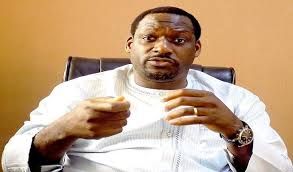By Sodiq Omolaoye
As the fear of food insecurity in Nigeria continues to heighten, farmers across the country have linked the failure of government’s intervention programmes in the agricultural sector to the non-involvement of key stakeholders in the sector while developing programmes. They noted that despite the massive funds expended in the sector, the prices of agricultural products keep rising, with Nigeria always among the hotspots of global food security concerns.
The farmers raised the concern during a roundtable conference themed ‘Food Security in Nigeria: Nurturing Sustainable Development’ organised recently under the auspices of the Agriculture Development Project (ADP) in Abuja. The parley was attended by stakeholders in the agriculture value chain. Among them were seed producers, fertilizer producers, mechanization service providers, technology and innovation support services, rice, maize, wheat and cassava farmers.
Addressing the group, the convener of the Agricultural Development Project, Sadiq Umar Daware, said most of government programmes and projects since 1960, including those of Muhammadu Buhari’s administration were all bedeviled by the same twin evil of poor policy formulation and faulty implementation. According to him, if the right steps were taken, Nigeria could feed itself and many other countries, considering the fact that agriculture had always been the country’s economic mainstay.
“As key players in the agricultural space, we are not unaware of the many laudable projects and programmes initiated by successive governments since independence. However, we have noted with great dismay that from the Regional Agricultural Programmes (RAP) under the administrations of Dr. Nnamdi Azikiwe and Sir Abubakar Tafawa Balewa from 1960 to 1966, to the very recent Anchor Borrowers’ Programme (ABP) of the Muhammadu Buhari’s administration, they have all been bedeviled by the same twin evil of poor policy formulation and faulty implementation. Unfortunately, despite this glaring reality, all successive governments have opted for this faulty modus operandi which has always ended in failure of monumental proportions. We cannot continue doing the same thing while expecting a different outcome”, he noted.
Commending President Bola Tinubu for declaring a state of emergency on food security in the country, Daware observed that the current high price of foodstuff is a huge embarrassment to the people of Nigeria. He said: “Armed with history and our cognate experience, we the concerned stakeholders in the agricultural sector have decided to rise to the task, instead of standing aloof and waiting for another failed intervention. Therefore, after due consultation with stakeholders of like minds in agriculture, we decided to bring together all interested active players along the entire agricultural value chain by the current administration to a round table where we could come up with a common position that aligns all moving parts within the agricultural value chain for a sustainable and profitable engagement with the government.
“We came together, discussed, deliberated and came up with recommendations to the government on how best we can handle agriculture in Nigeria and get out of this mess. Today, a bag of maize costs around N65, 000 to N70,000. This is an embarrassment to the country, and an embarrassment to every farmer in Nigeria. We are just above 200 million Nigerians. How many hectares do we need to cultivate and produce what we can eat in Nigeria? To me, it is something that is doable”.

President, National Cotton Association of Nigeria (NACOTAN), Anibe Achimugu, said lack of access to good quality planting materials, high cost of farm inputs, fertilizer and agro chemicals were some of the challenges faced by farmers. While stressing the need for farmers to be brought to the roundtable when developing intervention programmes, he said: “We could do a lot better than what we’re doing. For instance, the flooding that has occurred in recent times affected smallholder farmers a great deal. It also impacted on food security in the country. We talk about lack of access to good quality planting material that is seed. We also have high cost of inputs, fertilizer, agro chemicals and so on. And when you put all these things together, it means that the country is actually struggling to meet its food requirements. We are not self- sufficient and of course, we are trying to say that a lot of the things we import can actually be produced here locally in Nigeria.
“For several years now, we’ve had more than 20 interventions in agriculture but these interventions have not in any way impacted in the way and manner that they ought to have. We want these interventions to be sustainable and the best way to do it is to walk through those who are practitioners in the actual fact. We’re saying that if we’re not called to the roundtable, if we’re not called to develop these policies and interventions, then obviously when it comes to implementation, there will be serious gaps.”




